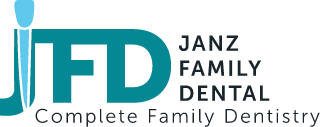When it comes to your oral health, most people know about protecting themselves against cavities. They’re not the only threat you should be aware of, however. We at Janz Family Dental offer family and children’s dentist services at our clinic in Edmonton. One potential threat to your oral health that you may be less familiar with is teeth grinding. Although it may not sound like that serious a problem, it can be if left untreated. Teeth grinding (also known as “bruxism”) means more than just clenching your jaw every so often. If you frequently grind your teeth, either while you sleep or while awake, over time it can do a lot of damage to your teeth’s enamel and your jaw. Given enough time, grinding can chip away at your enamel, cause stress fractures in your teeth, or lead to headaches, chronic pain, or more substantial jaw damage. What’s more, because grinding happens over a long period of time and while you’re asleep, you may not even know that you’re doing it until the damage has already been done.
What causes teeth grinding?
If it happens at night, teeth grinding is categorized as a sleep-related movement disorder. It also often occurs in conjunction with other movement disorders like snoring or sleep apnea. A few common causes of teeth grinding, either at night or during the day, include:
- Sleep Apnea. Obstructive sleep apnea occurs when the throat muscles relax during the night, blocking the airway and interrupting breathing. People tend to subconsciously grind there teeth in order to shift their
- Jaw into a more optimal position for breathing.
- Stress. Perhaps the most common cause of bruxism. Some people react to stress by unconsciously grinding their teeth either while awake or while they sleep.
- Reactions to medication. Teeth grinding can bean unwanted side effect of some medications.
- Genetic predisposition. According to some studies, if your parents grind their teeth, you’re more likely to grind your teeth as well.
- Age. Bruxism can occur in young children. While most grow out of the habit, not all do.
What can I do to prevent teeth grinding?
Luckily, there’s a lot you can to do prevent the worst of the damage that teeth grinding can cause, including:
- Finding stress-management techniques. Whether it’s exercise, meditation, or some other technique, finding ways to deal with daily stress can help your health.
- Night guards. A common and effective method of protecting your teeth from the effects of grinding is to get a custom-made night guard (a plastic mouthpiece, like a mouth guard you might see an athlete use) from your local dentist in Edmonton.
- Medication. For more serious cases, a muscle relaxant or other medication may be necessary.
- Dental correction. For the most extreme cases, some kind of surgical procedure to prevent further damage may even be necessary.
If you’re worried you or your child are experiencing bruxism, visit us at Janz Family Dental today. Whether you need a children’s dentist or one for the whole family, contact our dental clinic in Edmonton today to find out how we can help you protect every aspect of your oral health.

